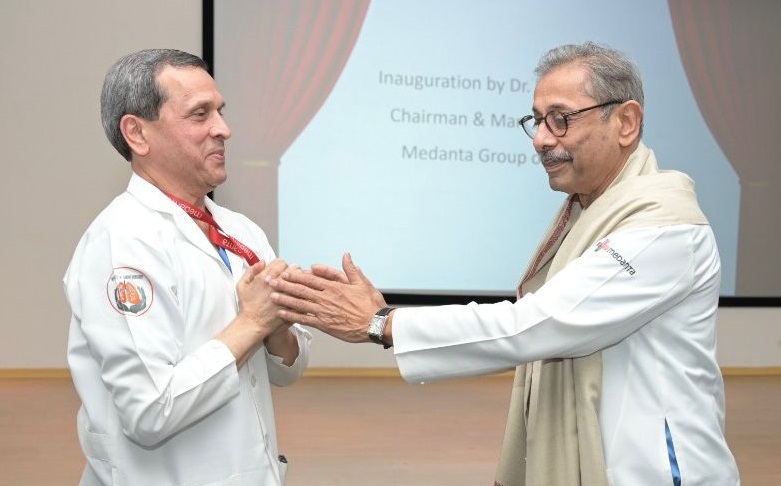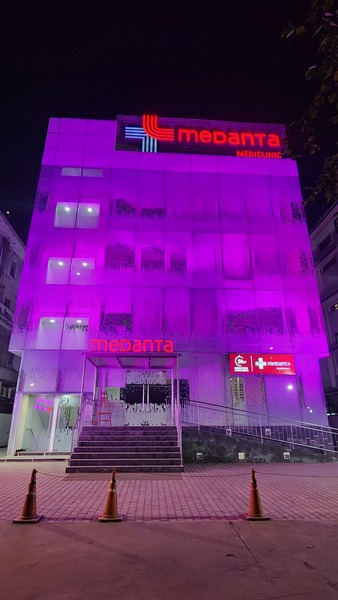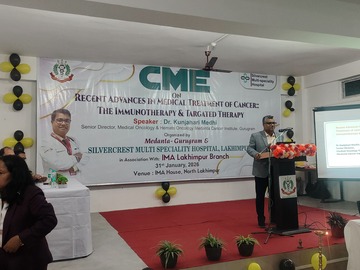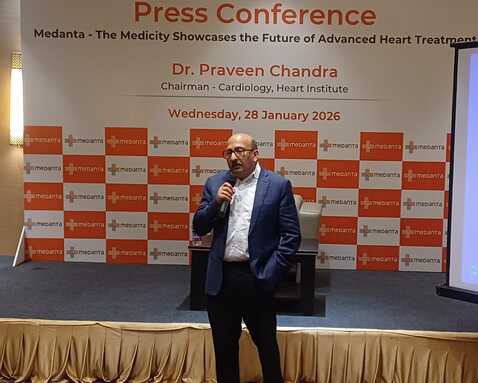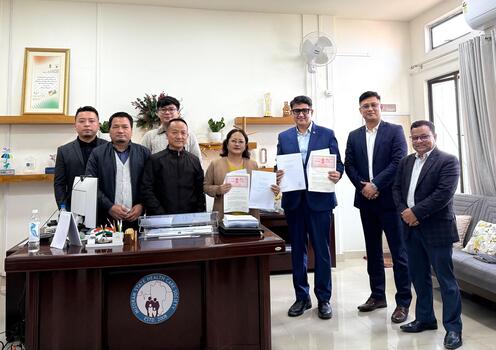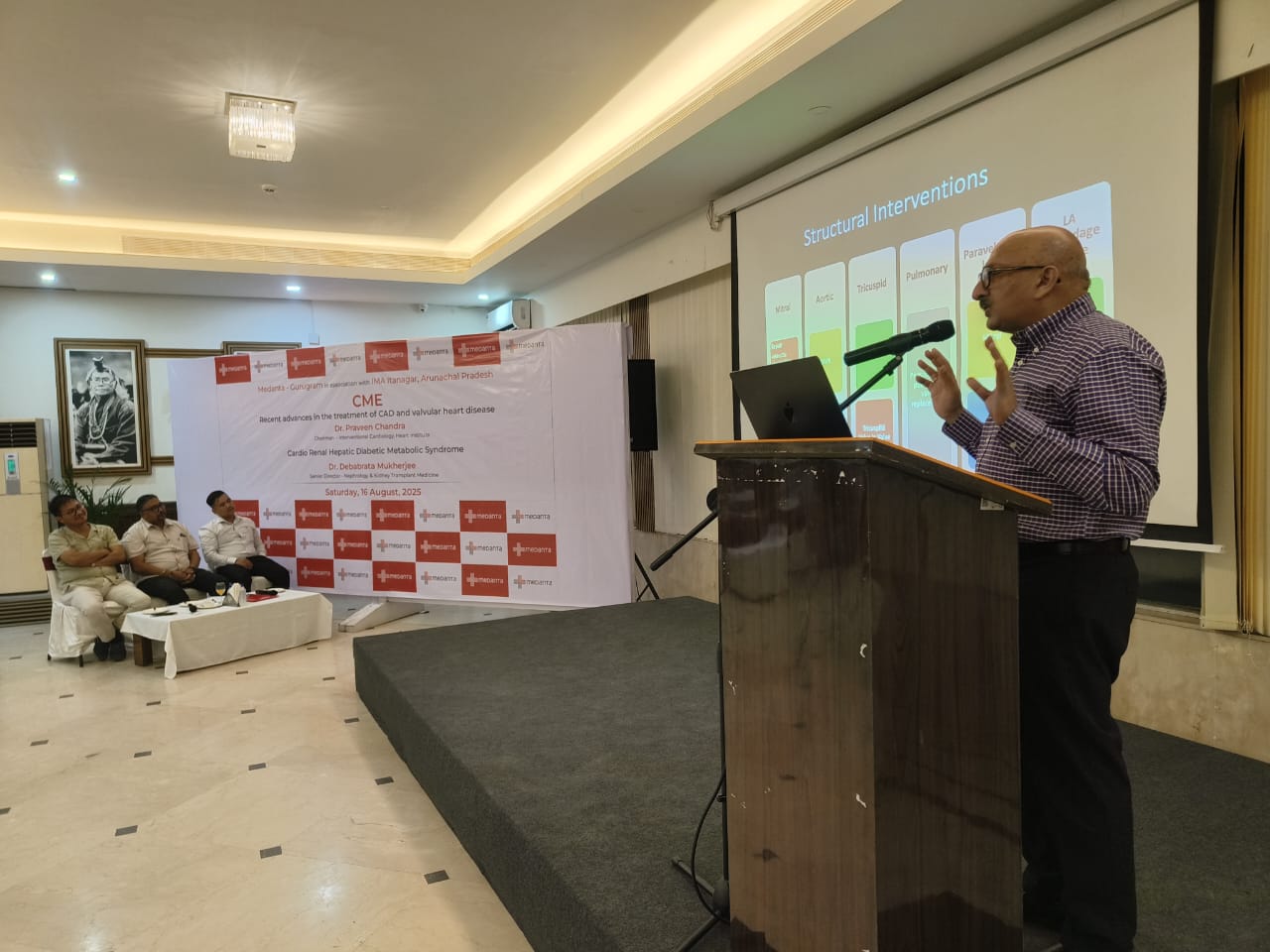
Medanta Leads the Way in Treatment of Coronary Artery Disease and Related Renal Ailments
Itanagar, August 16: Gurgaon-based Medanta – The Medicity, named Best Private Hospital in India by Newsweek for six years in a row, continues to lead the way in clinical research and advanced treatment options for a wide range of diseases.
Dr. Praveen Chandra, Chairman, Interventional Cardiology, Cardiac Care at Medanta – The Medicity, and Dr. Debabrata Mukherjee, Senior Director, Nephrology, Renal Care at Medanta – The Medicity, in a series of talks held at Itanagar, emphasized the urgent need for early detection and management of advanced cardiac conditions — including Coronary Artery Disease (CAD) and Valvular Heart Disease — as well as complex metabolic disorders like Cardio-Renal-Hepatic-Diabetic Metabolic Syndrome. The initiative underscores Medanta’s commitment to making world-class healthcare accessible to patients across the country.
CAD, caused by plaque buildup in heart arteries, is driven by factors like high cholesterol, smoking, diabetes, hypertension, obesity, stress, poor diet, and inactivity. Valvular Heart Disease (VHD) damages heart valves, disrupting blood flow and causing breathlessness, chest discomfort, and fatigue; if untreated, it can lead to heart failure or stroke. Adding to this cardiovascular burden is Cardio-Renal-Hepatic-Diabetic Metabolic Syndrome (CRHD-MS), where heart disease often overlaps with kidney and liver dysfunction.
Dr. Praveen Chandra, Chairman, Interventional Cardiology, Cardiac Care, Medanta, Gurugram, said, “We now have advanced cardiac interventions— including a range of valve repair and replacement options, where damaged heart valves are either repaired to restore proper function or replaced with artificial valves; minimally invasive small access surgery, which uses smaller incisions to reduce pain, scarring, and recovery time; robotic surgery, utilizing robotic assistance for enhanced precision and control during complex procedures; and interventions to manage uncontrolled blood pressure and cholesterol, addressing key risk factors that contribute to heart disease progression -- transcatheter valve repair or replacement (TAVR), next-generation angioplasty, rotational atherectomy, and hybrid surgical techniques — that deliver excellent outcomes even in high-risk or elderly patients, reducing hospital stays, complications, and recovery time. But these benefits are greatest when disease is detected early. By integrating medical expertise, technology, and community health programs into a unified strategy, we can transform heart care from being reactive to proactive—preventing avoidable complications and saving countless lives.”
Dr. Debabrata Mukherjee, Senior Director, Nephrology, Renal Care, Medanta, Gurugram, explained, “The intricate relationship between chronic kidney disease (CKD), heart disease, and metabolic disorders demands a shift in how we approach patient care. This is especially true when considering the Cardio-Renal-Hepatic-Diabetic Metabolic Syndrome, which is not just a collection of individual diseases—it's a chain reaction where dysfunction in one organ accelerates damage in others. For example, poorly managed diabetes can lead to kidney damage, which in turn increases cardiovascular risk, ultimately affecting the liver and heart function. That's why we need integrated, interdisciplinary strategies that target the underlying metabolic drivers of these interconnected conditions. Our aim in Itanagar was to equip healthcare providers with the knowledge to recognize this interconnected pattern early, use the right diagnostic tools, and implement multidisciplinary treatment plans that address the root metabolic dysfunction, not just its symptoms. Such an integrated approach—combining cardiology, nephrology, endocrinology, and lifestyle interventions—is essential, for improving patient outcomes, slowing disease progression, enhancing quality of life, and significantly cutting down the long-term health and economic burden on communities.”
